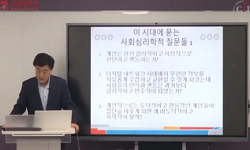본 연구의 목적은 귀인이론에 근거하여 비인격적 감독을 상사 탓으로 돌리는 부하의 경우 상사에 대한 분노와 공격성이 강화될 것이고, 자신의 탓으로 돌리는 부하는 비인격적 대우를 당함...
http://chineseinput.net/에서 pinyin(병음)방식으로 중국어를 변환할 수 있습니다.
변환된 중국어를 복사하여 사용하시면 됩니다.
- 中文 을 입력하시려면 zhongwen을 입력하시고 space를누르시면됩니다.
- 北京 을 입력하시려면 beijing을 입력하시고 space를 누르시면 됩니다.

눈에는 눈 이에는 이? 비인격적 감독에 있어 상사에 대한 부하의 연민과 용서 = Eye for an Eye? Subordinates’ Sympathy and Forgiveness for Abusive Supervisors
한글로보기https://www.riss.kr/link?id=A107355005
- 저자
- 발행기관
- 학술지명
- 권호사항
-
발행연도
2021
-
작성언어
-
-
주제어
비인격적 감독 ; 귀인 ; 연민 ; 용서 ; abusive supervision ; attribution ; sympathy ; forgiveness
-
등재정보
KCI등재
-
자료형태
학술저널
-
수록면
79-102(24쪽)
-
KCI 피인용횟수
0
- DOI식별코드
- 제공처
-
0
상세조회 -
0
다운로드
부가정보
국문 초록 (Abstract)
본 연구의 목적은 귀인이론에 근거하여 비인격적 감독을 상사 탓으로 돌리는 부하의 경우 상사에 대한 분노와 공격성이 강화될 것이고, 자신의 탓으로 돌리는 부하는 비인격적 대우를 당함에도 불구하고 상사에 대한 연민의 감정과 용서의 행동에 긍정적일 것임을 실증적으로 검증하는데 있다. 비인격적 감독이라는 자극에 반응하는 부하직원의 감정과 행동을 귀인이론의 핵심인 사건(비인격적 감독)의 원인에 대한 파악과 연관 지어 이해하는데 그 의의가 있다. 따라서 본 논문은 부하가 자신에게 가해진 비인격적 대우의 원인을 어디로 돌리는 지에 관한 귀인의 대상이 어떻게 부하의 다양한 감정과 반응에 영향을 줄 수 있는지에 관한 조절된 매개 연구모형을 테스트하였다. 329명의 설문 응답을 분석한 결과, 비인격적 감독이 상사에 대한 연민을 통해 상사에 대한 용서와 간접적으로 관련이 있다는 것을 발견했다. 또한 자기귀인이 상사에 대한 연민을 통해 상사에 대한 용서로 이어지는 간접 영향을 조절함을 발견했다. 본 논문의 연구결과는 비인격적 감독으로부터 기인하는 부하의 다양한 감정과 행동의 관계를 밝히며, 특히 부하의 상사에 대한 연민과 용서라는 새로운 개념을 검증한 점에서 이론적 시사점을 제공한다. 이상의 결과와 시시점을 바탕으로 본 연구는 비인격적 감독의 피해자중 왜 일부는 침묵하고 일부는 그렇지 않은지에 대한 이유와 메커니즘을 보여줌으로써 비인격적 감독 연구 분야에 기여한다.
다국어 초록 (Multilingual Abstract)
Based on the atturibution theory, the purpose of this study is to show that subordinates who attribute abusive supervision to supervisors will strengthen their anger toward supervisor and supervisor-directed aggression, but those who attribute it to t...
Based on the atturibution theory, the purpose of this study is to show that subordinates who attribute abusive supervision to supervisors will strengthen their anger toward supervisor and supervisor-directed aggression, but those who attribute it to themselves will be positive in their sympathy and forgiveness for supervisor. It is meaningful to understand the emotions and behaviors of subordinates who respond to the stimulus of abusive supervision in relation to the understanding of the cause of events (abusive supervision), which is the core of attribution theory. Thus, we tested a moderated mediation model predicting various feelings and reactions given the attribution targets of abused subordinates. Using the survey responses of 329 participants, this study found that perception of abusive supervision was positively related to forgiveness for supervisor through its association with sympathy for supervisor. We also found that self-directed attribution moderated the indirect effects for forgiveness for supervisor through the sympathy for supervisor. Our results demonstrate the relationship between various emotions and behaviors of subordinates resulting from abusive supervision, and provide theoretical implications, especially in testing the novel idea of subordinates’ sympathy and forgiveness for supervisors. Based on our results and implications, this study contributes to the field of abusive supervision research by showing the reason and mechanism for why some recipients of abuse are silent but others not.
참고문헌 (Reference)
1 이준혁, "임파워링 리더십이 구성원들에게 미치는 부정적인 영향 - 임파워링 리더십의 통제권 부여 특성을 중심으로 -" 한국인적자원관리학회 26 (26): 1-31, 2019
2 이은영, "임상간호사의 감정노동과 자아탄력성이 소진에 미치는 영향" 한국인적자원관리학회 27 (27): 1-11, 2020
3 김진희, "상사의 비인격적 감독이 구성원의 발언행동에 미치는 영향: 자원보존이론의 관점에서" 한국인사조직학회 27 (27): 43-71, 2019
4 지성호, "상사의 구조적 및 희생적 행동이 대인지향 행동에 이르는 과정에서 감정노동의 역할" 한국인적자원관리학회 26 (26): 147-172, 2019
5 Dupré, K. E., "Workplace aggression in teenage part-time employees" 91 (91): 987-997, 2006
6 Stamper, C. L., "Work status and organizational citizenship behavior : A field study of restaurant employees" 22 (22): 517-536, 2001
7 Bowling, N. A., "Why do you treat me badly? The role of attributions regarding the cause of abuse in subordinates'responses to abusive supervision" 25 (25): 309-320, 2011
8 Inness, M., "Understanding supervisor-targeted aggression : A within-person, between-jobs design" 90 (90): 731-739, 2005
9 Martinko, M. J., "Toward an integrative theory of counterproductive workplace behavior : A causal reasoning perspective" 10 (10): 36-50, 2002
10 Heider, F, "The psychology of interpersonal relations" Wiley 1958
1 이준혁, "임파워링 리더십이 구성원들에게 미치는 부정적인 영향 - 임파워링 리더십의 통제권 부여 특성을 중심으로 -" 한국인적자원관리학회 26 (26): 1-31, 2019
2 이은영, "임상간호사의 감정노동과 자아탄력성이 소진에 미치는 영향" 한국인적자원관리학회 27 (27): 1-11, 2020
3 김진희, "상사의 비인격적 감독이 구성원의 발언행동에 미치는 영향: 자원보존이론의 관점에서" 한국인사조직학회 27 (27): 43-71, 2019
4 지성호, "상사의 구조적 및 희생적 행동이 대인지향 행동에 이르는 과정에서 감정노동의 역할" 한국인적자원관리학회 26 (26): 147-172, 2019
5 Dupré, K. E., "Workplace aggression in teenage part-time employees" 91 (91): 987-997, 2006
6 Stamper, C. L., "Work status and organizational citizenship behavior : A field study of restaurant employees" 22 (22): 517-536, 2001
7 Bowling, N. A., "Why do you treat me badly? The role of attributions regarding the cause of abuse in subordinates'responses to abusive supervision" 25 (25): 309-320, 2011
8 Inness, M., "Understanding supervisor-targeted aggression : A within-person, between-jobs design" 90 (90): 731-739, 2005
9 Martinko, M. J., "Toward an integrative theory of counterproductive workplace behavior : A causal reasoning perspective" 10 (10): 36-50, 2002
10 Heider, F, "The psychology of interpersonal relations" Wiley 1958
11 Liu, D., "The dark side of leadership : A three-level investigation of the cascading effect of abusive supervision on employee creativity" 55 (55): 1187-1212, 2012
12 Toussaint, L. L., "The association of forgiveness and 12-month prevalence of major depressive episode: Gender differences in a probability sample of U.S. adults" 11 (11): 485-500, 2008
13 Clark, C., "Sympathy biography and sympathy margin" 93 (93): 290-321, 1987
14 Lee, H., "Sympathy and Anger:The Role of Attributions in Emotional Responses to Abusive Supervision" 2012
15 Day, R. C., "Some effects of close and punitive styles of supervision" 69 (69): 499-510, 1964
16 Duffy, M. K., "Social undermining in the workplace" 45 (45): 331-351, 2002
17 Vidal, M. E., "Shame and adult sexual assault : A study with a group of female survivors recruited from an East London population" 22 (22): 159-171, 2007
18 Kelley, H. H, "Review of personality and social psychology, Vol. 5" Sage Publications 89-115, 1984
19 Eisenberg, N., "Relation of sympathy and personal distress to prosocial behavior : A multimethod study" 57 (57): 55-66, 1989
20 Martinko, M. J., "Perceptions of abusive supervision : The role of subordinates'attribution styles" 22 (22): 751-764, 2011
21 Aquino, K., "Overt anger in response to victimization:Attributional style and organizational norms as moderators" 9 (9): 152-164, 2004
22 Hair, J., "Multivariate data analysis" Prentice-Hall 2006
23 Martinko, M. J., "Monographs in organizational behavior and industrial relations, Vol. 23, Parts A & B. Dysfunctional behavior in organizations:Violent and deviant behavior" Elsevier Science/JAI Press 1-42, 1998
24 Tepper, B. J., "Moderators of the relationships between coworkers' organizational citizenship behavior and fellow employees'attitudes" 89 (89): 455-465, 2004
25 Edwards, J. R., "Methods for integrating moderation and mediation : A general analytical framework using moderated path analysis" 12 (12): 1-22, 2007
26 Mayer, D. M., "Leader mistreatment, employee hostility, and deviant behaviors : Integrating self-uncertainty and thwarted needs perspectives on deviance" 117 (117): 24-40, 2012
27 Lee, H., "Individual sources, dynamics, and expressions of emotions" Emerald Group Publishing 53-67, 2013
28 Ellsworth, P. C., "Handbook o affective sciences" Oxford University Press 572-595, 2003
29 Kubany, E. S., "Guilt : Elaboration of a multidimensional model" 53 (53): 51-90, 2003
30 Aquino, K., "Getting even or moving on? Power, procedural justice, and types of offense as predictors of revenge, forgiveness, reconciliation, and avoidance in organizations" 91 (91): 653-668, 2006
31 Toussaint, L. L., "Forgiveness and health : Age differences in a U. S. probability sample" 8 (8): 249-257, 2001
32 Lazarus, R. S, "Emotion and adaptation" Oxford University Press 1991
33 Peng, A. C., "Discrte emotions linking abusive supervision to employee intention and behavior" 72 (72): 393-419, 2019
34 Gonzalez-Morales, M. G., "Defeating abusive supervision : Training supervisors to support subordinates" 23 (23): 151-162, 2018
35 Finkel, E. J., "Dealing with betrayal in close relationships: Does commitment promote forgiveness?" 82 (82): 956-974, 2002
36 Tepper, B. J, "Consequences of abusive supervision" 43 (43): 178-190, 2000
37 Hershcovis, M. S., "Comparing victim attributions and outcomes for workplace aggression and sexual harassment" 95 (95): 874-888, 2010
38 Douglas, S., "Cognitions, emotions, and evaluations : An elaboration likelihood model for workplace aggression" 33 (33): 425-451, 2008
39 Martinko, M. J, "Attribution theory in the organizational sciences: Theoretical and empirical contributions" Information Age 297-305, 2004
40 Spencer, S., "Angry, guilty, and conflicted : injustice toward coworkers heightens emotional labor through cognitive and emotional mechanisms" 94 (94): 429-444, 2009
41 Averill, J. R, "Anger and aggression: An essay on emotion" Spring-Verlag 1982
42 Weiner, B, "An attributional theory of achievement motivation and emotion" 92 (92): 548-573, 1985
43 Crown, L., "Against their will : Young women's nonagentic sexual experiences" 24 (24): 385-405, 2007
44 Tillman, C., "Affective responses to abuse in the workplace : The role of hope and affective commitment" 26 (26): 57-65, 2018
45 Tepper, B. J., "Abusive supervision, upward maintenance communication, and subordinates'psychological distress" 50 (50): 1169-1180, 2007
46 Chan, M. E., "Abusive supervision through the lens of employee state paranoia" 39 (39): 44-66, 2014
47 Tepper, B. J, "Abusive supervision in work organizations : Review, synthesis, and research agenda" 33 (33): 261-289, 2007
48 Mitchell, M. S., "Abusive supervision and workplace deviance and the moderating effects of negative reciprocity beliefs" 92 (92): 1159-1168, 2007
49 Tepper, B. J., "Abusive supervision and subordinates'organization deviance" 93 (93): 721-732, 2008
50 Lian, H. W., "Abusive supervision and retaliation : A self-control framework" 57 (57): 116-139, 2014
51 MacKey, J. D., "Abusive supervision : A meta-analysis and empirical review" 43 (43): 1940-1965, 2017
52 Littleton, H. L., "A meta-analysis of self-attributions following three types of trauma : Sexual victimization, illness, and injury" 37 (37): 515-538, 2007
53 MacKinnon, D. P., "A comparison of methods to test mediation and other intervening variable effects" 7 (7): 83-104, 2002
54 Hinkin, T. R, "A brief tutorial on the development of measures for use in survey questionnaires" 1 (1): 104-121, 1998
동일학술지(권/호) 다른 논문
-
기혼 여성근로자들의 프로틴 경력지향성과 일-가정 균형 및 경력만족의 관계 - 업무 후 모바일기기 사용의 조절된 매개효과를 중심으로 -
- 한국인적자원관리학회
- 고현미 ( Go Hyun Mi )
- 2021
- KCI등재
-
군 간부의 가족갈등이 자살행동에 미치는 영향 - 직무스트레스의 매개효과를 중심으로 -
- 한국인적자원관리학회
- 김재엽 ( Kim Jae Yop )
- 2021
- KCI등재
-
- 한국인적자원관리학회
- ( Nam Yoon Sung )
- 2021
- KCI등재
-
문제해결 스타일이 혁신행동에 미치는 영향 - 핵심자기평가와 상사지원인식의 조절효과 검증을 중심으로 -
- 한국인적자원관리학회
- 강순 ( Xun Jiang )
- 2021
- KCI등재
분석정보
인용정보 인용지수 설명보기
학술지 이력
| 연월일 | 이력구분 | 이력상세 | 등재구분 |
|---|---|---|---|
| 2025 | 평가예정 | 재인증평가 신청대상 (재인증) | |
| 2022-01-01 | 평가 | 등재학술지 선정 (계속평가) |  |
| 2021-12-01 | 평가 | 등재후보로 하락 (재인증) |  |
| 2018-01-01 | 평가 | 등재학술지 유지 (등재유지) |  |
| 2015-01-01 | 평가 | 등재학술지 유지 (등재유지) |  |
| 2011-01-01 | 평가 | 등재 1차 FAIL (등재유지) |  |
| 2008-01-01 | 평가 | 등재학술지 선정 (등재후보2차) |  |
| 2007-01-01 | 평가 | 등재후보 1차 PASS (등재후보1차) |  |
| 2005-01-01 | 평가 | 등재후보학술지 선정 (신규평가) |  |
학술지 인용정보
| 기준연도 | WOS-KCI 통합IF(2년) | KCIF(2년) | KCIF(3년) |
|---|---|---|---|
| 2016 | 1.78 | 1.78 | 2.18 |
| KCIF(4년) | KCIF(5년) | 중심성지수(3년) | 즉시성지수 |
| 2.17 | 2.17 | 3.204 | 0.5 |





 KCI
KCI 스콜라
스콜라






